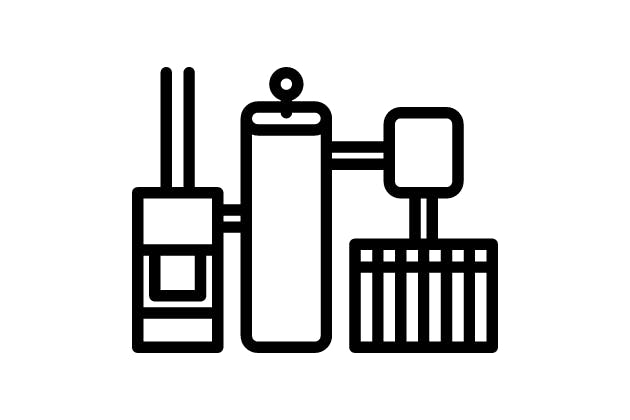Heating Engineers Kent
The central heating system is a vital component to your home, particularly during the cold seasons. Your central heating system provides your home with both heat and hot water. If you are thinking about replacing your old central heating system, you may wish to consider replacing your vented hot water cylinder with an unvented hot water cylinder.
This article will explain everything you need to know about unvented cylinder installations before you make the final decision and contact your local heating engineers to start the process.
Central Heating Installation Kent
The type of hot water cylinder that will need to be installed will depend on whether you are installing a conventional boiler or a system boiler. A vented hot water cylinder would be installed alongside a regular boiler, while an unvented cylinder would need to be installed if you have a system boiler. So what is the difference between a vented and an unvented cylinder installation?
Vented Cylinders
Before you are ready to figure out what type of hot water cylinder your home requires, we have provided some useful information on how vented cylinders work and some of the typical advantages this variation of cylinder offers.
How do vented cylinders work?
This type of cylinder requires a bigger sized tank of cold water that is kept in the attic to supply them. This water is transported by a vent pipe down to the hot water cylinder, which heats the water by the natural pull of gravity. Vented cylinders depend on gravity, and the pressure is determined by the height of the cold water tank. The water pressure increases linearly with height. As the water heats up, it expands, but the vent pipe and tank in the loft offer a way for the extra to escape.
Advantages of Vented Cylinders
To give you a better idea of the benefits that vented cylinders can offer you, we have listed their advantages below.
- Often simpler and cheaper to install.
- Very straightforward to maintain.
- You have a supply of water stored in your loft.
Unvented Cylinder Installation Kent
Now that you are aware of the properties and standard specifications of the vented hot water cylinder, it's time to see how the unvented cylinder differs. Below is all the information on unvented cylinders you will ever need.
How does an unvented cylinder work?
Unlike vented cylinders, an unvented cylinder does not rely on a gravity-fed water tank. Instead, hot water is delivered under pressure and is either heated by an immersion heater or an alternative heat source found outside the vessel. To deal with the extra pressure that unvented cylinders experience, an expansion vessel is present to ensure there is no risk of pressure damage occurring. Your heating engineer will explain to you how your new unvented cylinder installation will work and whether it is directly heated or indirectly heated.
Directly heated
This is when the cylinder is directly heated from an electric immersion tank, which is situated inside the unvented cylinder.
Indirectly heated
This is when the cylinder is heated indirectly from another source, such as a boiler, solar panels, or a heat pump.
Unvented cylinders have highly sophisticated safety systems. They lower the temperature or vent pressure if there is a risk of either becoming too high.
Advantages of unvented cylinders
There are many advantages that you will benefit from when you change your central heating system and get an unvented cylinder installed. These are as follows:
1. An unvented cylinder is supplied with water straight from the mains, so there is no need for a water storage tank in your loft. This ultimately saves on space.
2. Much higher water pressure. Because the water is directly supplied from the cold mains, the pressure is generally much higher.
3. A more reliable flow of water is delivered to your central heating system again this is because the water is directly supplied from the cold water mains.
4. Reliable and long-lasting.
5. Reduces your carbon footprint. Unlike a vented system, an unvented cylinder can be used alongside solar panels, reducing your energy bills and your carbon footprint.
6. It can be installed anywhere in your home, as a vented system would have to be installed directly under the loft storage tank.
7. Much quieter and run in the background.
8. The unvented cylinder forms part of a sealed system which removes the risk of the cold water tank potentially being contaminated.
Boiler Installation
The team here at BCU Plumbing will be able to assist you at every step of the installation process. We can supply and install all elements that are required for your new central heating installation. You just need to decide which type of boiler will be best suited for your home and for your family’s requirements. If you would like to see some of the previous projects that we have worked on, feel free to check out our gallery page. Again, our team is here to help you with this decision.
Types of Boilers
In this day and age, there are far more boiler options than just your standard traditional boiler. In fact, there are three main types of boiler that you could have installed alongside the rest of your central heating system. These are as follows:
- A combi boiler is one single unit that generates both the hot water and the heating.
- A conventional boiler provides the heating and works alongside a hot water cylinder.
- A system boiler has most components integrated inside the boiler, but they work alongside a hot water cylinder.
Why choose BCU Plumbing?
If you live in the Kent area and are looking at getting a new central heating installation started in your home, please contact us for advice at bcuplumbing@hotmail.com.
We will be happy to help with all your plumbing needs. If you have decided to proceed with an unvented cylinder installation, please contact us on 07712172171, and our highly qualified, Gas Safe registered heating engineers will be able to assist you.


